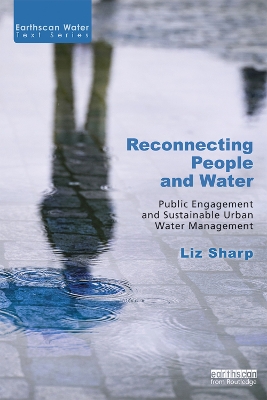Water management in industrialised western countries has long been seen as a technical process associated with pipes, drains and bureaucracies. This technical model of water management is now being questioned. This book examines the nature of contemporary water management and the prospects for and barriers to different forms of engagement with the public.
In particular, it shows how historical and social scientific understandings develop and question current water management norms in relation to water in the landscape, water in the home and the hidden management of water beneath our streets and behind our walls. It is shown that the four-fold challenges of climate change, urbanisation, changing environmental standards and fiscal accountability mean that we can no longer rely on unseen technical fixes to erase the threats of pollution, water shortages and floods. Such concerns offer two prompts for public engagement and participation. First, on a purely instrumental level, public engagement can complement, or offer an obvious alternative to, technical fixes. Second, public engagement may provide a route to find new ways of addressing water and related challenges.
The author offers a unique social science perspective on many of the socio-technical issues facing the management of water in urban settings in developed countries, where urban is interpreted broadly to include all areas served by piped water. Drawing on historical context and an extensive review of the published literature, as well as the author's own empirical studies, the work prompts broader discussions about how we manage water in contemporary society. It is invaluable for students and professionals in water resource management and planning.
- ISBN10 0415728452
- ISBN13 9780415728454
- Publish Date 23 May 2017 (first published 18 May 2017)
- Publish Status Active
- Publish Country GB
- Publisher Taylor & Francis Ltd
- Imprint Routledge
- Format Paperback
- Pages 230
- Language English
